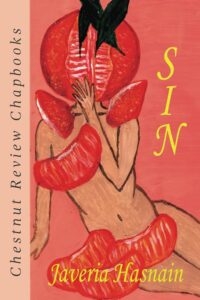Zoshchenko’s Unstable We: The Tension of Collective Plurals in Soviet Fiction
by Alina Stefanescu
November 30, 2020
1.
Mikhail Zoshchenko was born in Poltava, in present-day Ukraine, to a Ukrianian father and a Russian mother. He wrote primarily in Russian. His short story collection, The Galosh and Other Stories (London: Angel Books, 2000), has kept me company during the estrangement of Trumplandic pandemic. At the heart of Zoshchenko’s work is the role of satire and its relation to political dissent, or rather, the precise point at which satirizing a society becomes a critique of the state itself. Because I am deeply interested in satire as critique of current American culture and governance, I want to provide context for Zoshchenko’s brilliance and his stakes in the skin of the Soviet game.
2.
In the 1920’s, the USSR was a country between gernes. Bolsheviks won the battle over governance, but no one knew what that meant yet. It was a middling time, easier to describe in retrospect. Lenin’s New Economic Policy acknowledged the need for gradualism in order to create a proper Soviet proletariat. A simulacra of liberalism and market exchange was permitted while official decrees and statements criticized the culture of bourgeois materialism. NEP was a practical strategy, both pedagogic and economic, buying time for the institutionalization of drastic social change. Poets like Vladimir Mayakovsky became literal poster-boys for the mocking of petty-bourgeois socialization; Mayakovsky’s popular posters scoffed at mechchenstvo, or lack of devotion to revolutionary ideals.
The role that writers would play was being negotiated. Tracing the history of satire through the early Soviet period gives us a sense of how language implicates–and is implicated by–constructions of power. Under NEP, satire was permitted and not censored.
Entertainment included laughter, mockery, and served as a unifying force and release valve for social pressure. But there were rumblings from Soviet critics even then. Those critics insisted that satire wasn’t necessary after 1923, since the establishment of the Soviet Union addressed social ills legally and correctly. What “correctly” meant would be an ongoing dispute throughout the Soviet period.
3.
The concept of kulturnost, translated by Jeremy Hicks as “living properly,” referred to civilized behavior, social norms, hygiene, and manners. But what does it mean to behave correctly in a revolutionary time when the scriptures of Marx do not apply to the situation on the ground? Like fundamentalist pastors, Soviet leaders and theorists became divining rods for unquestionable dicta, interpreting textual scripture from a position of expertise and authority, thus turning alternate interpretations into secular forms of heresy and crimes against the state. The line between propaganda and literature or entertainment does not exist for those who rely on texts as avenues to revelation.
In Zoshchenko’s stories, the characters consistently trespass a blurry, evolving kulturnost that consists of technical, uncertain words increasingly used at Party meetings and in media. To the extent that they attempt kulturnost by use of new language, they wear it awkwardly, extraneously, like a cheap, one-size-fits-all costume.
Although his work was seen as satire, Zoshchenko insisted that it was didactic, and the humor was a side-effect rather than the intention. Zoshchenko considered himself a rationalist, and the question remains: what was his satire teaching? In 1927, he described what he did as a “parodying,” adding that he was standing-in for the proletariat writer who didn’t yet exist. The proletarian writer question was eventually resolved by the formulation of Socialist Realism, but the 1920’s remained marked by an open space where new terminology coexisted with economic shortages.
4.
The feuilleton, an elaboration of topical factual material, had emerged as a popular genre, facilitated by the rise of the printing press. Zoshchenko transformed the feuilleton by localizing with the Russian storytelling mode known as skaz, in which the narrator is another character. As a narrative style, skaz was popularized by Nikolai Gogol and Nikolai Lesvov. Using satire to make ideology the locus of conflict in community life revealed the existential nature of early Soviet life. A generalized utopia which exists in both future and present tense–a temporality never quited resolved by Soviet theorists–is tested in the actual banality of human lives, where abstractions don’t map the characters’ experience of the world. The question of trust and loyalty enters at the level of individual experience: should one trust what one knows by experience or what one believes according to official experts? In a sense, Zoshchenko gets away with satire because the characters always defer to the ideology, which makes it hard to call it a social critique.
5.
Svetlana Boym notes that “authoritarian and totalitarian regimes favor a resacralization of the public realm.” In this new sacred space, literature and arts are means of propaganda or socialization into the sacred ideal of revolutionary spirit. Rival discourses and “unsanctioned performances” are seen as competitors for truth, a threat to the sanctity of the state in its new positioning as vanguard of the global communist revolution. The disappearance of private life, the sense in which surveillance turns even the intimate into public space, foregrounds spectacle. Stalin’s emphasis on enforced attendance mass festivals as galvanizing events is inseparable from the development of what Boym calls “the secret spaces of fear” internalized by Soviet citizens.
The new binary of “sanctioned” vs. “unsanctioned” art guides writers and artists during this time when state sanction begins to determine publication, membership in the Writer’s Union, and ideological correctness. The state destroys the Church in order to replace it as the primary vehicle of moral correctness, the authority on good behavior, the seat of judgement before the tribunal of Hegelian History. By 1930, political needs led to the shutting down of satirical presses. Comedy became suspicious; mockery became dangerous as reverence for the regime took precedence. Zoshchenko’s writing voice lost official sanction.
6.
And so the end of ambiguity arrived, as it often does, with war. As World War II unwound, Stalin came to believe that ambiguous satires were dangerous for Soviet readers. Like many silenced writers, Zoshchenko turned to children’s stories to escape the censors, and even wrote a youth-directed series about Lenin. But when his satirical short story, “The Adventures of a Monkey” was published in a 1946 literary journal, it led to harsh. Andrei
Zhdanov, the Communist Party spokesman on cultural matters, read the story as a satire of Soviet life which suggested it was better to live in a zoo cage rather than the city. Zhdanov attacked it in his own literary mode, by using the new genre of party resolutions (I swear Party Resolutions are a genre that deserves more attention). In the Party Resolution of 1946, he called the story slanderous and deviant. Zoshchenko was attacked alongside Akhmatova in bitter, hyperbolic language.
As a result, Zoshchenko was expelled from the Writer’s Union. Public ostracism and persecution broke his will to write, since he believed that his task as a satirist and proponent of rationalism was to educate Soviet readers. Zoshchenko found it nearly impossible to publish anything until after Stalin’s death in 1953, when he underwent a slight, informal rehabilitation.
This informal rehabilitation enabled a soft return to the public scene. In May 1954, a group of English students met with him and Akhmatova. The students asked if they agreed with the Party Resolution condemning their word. Akhmatova managed a yes – her son was a prisoner in a gulag at the time – while Zoshchenko announced that he did not. As a veteran soldier, Zoshchenko took special issue with the accusation of cowardice which suggested he had avoided the Leningrad blockade.
When Soviet officials ordered Zoshchenko to retract his public objection to the Resolution, he refused. This ended his life as a writer in the USSR. He died four years later, problematic to the end.
Here is a dry table of the events in my life: Arrested – 6 times, sentenced to death – 1 time, wounded – 3 times, committed suicide – 2 times, got beaten up – 3 times.
In this short bio, we can see how Zoshchenko’s satire mobilizes Orwellian doublespeak to encode, for example, his double condemnation by Soviet officials as forms of suicide, the writer killing himself.
7.
I want to look closely at Zoshchenko’s early short stories in order to understand how satire becomes threatening to totalitarian and authoritarian regimes. Each of these stories runs from one to three pages, using brevity and compression in ways that are instructive for flash fiction writers.
In flash, the title does a lot of work in setting tone and insinuating conflict. Zoshchenko’s short titles often set up a sort of intimate, conversational banality that feels contemporary. Using newspapers for themes and content, Zoshchenko estimated that thirty to forty percent of his stories were based on news articles and letters to the editor about social problems, including the housing shortage and fights breaking out over lack of personal space. The titles tell the reader what conflict to expect by framing each tale in light of its new vocabulary. “Economy Measures,” for example, evokes a new economic drive announced by the Communist Party. His use of titling is a stunning expansion of intertextuality, including official speeches, party meetings, new party directives, and ordinary letters from citizens. And “Does A Man Need Much?” brings Russian history to bear on the contemporary in referencing Lev Tolstoy’s didactic essay, “How Much Land Does A Man Need?” (first published in Intimate Tales for the People, 1886).
The skaz narration technique, where characters and narrator tell the story in conversation, deploys rich language, common expletives, and a collective we. While Lestov’s We tends to be the We of the village or peasant folk-life, Zoshchenko’s We includes the new urban pre-proletariat population. It is a shaky We, an unstable We, and a fascinating one. One could argue that Soviet readers were being introduced to the language of revolution through these stories. Zoshchenko centers the emerging class-conscious verbiage through constant reference to these words in such compressed space.
Individual characters are not always given proper names. Instead, we meet a five-man commission, a timekeeper, a Housing Manager, a Hero of Labor, Nepman, proletarians, an efficiency manager, various specialists, minorities, parasites, militiamen, thieves, emancipated workers, lecturers, citizens, witnesses, relatives, and victims. The use of these words which determine class status reveal the tension of the Soviet We, best represented in the consistent, mandatory use of Comrade as address. The brevity and sharp syntax creates a snappy, brisk pace made comfortable by occasional colloquialisms and street talk.
8.
The sense in which these stories are conversant with–and reflective of–current events makes them accessible while putting the author in an increasingly vulnerable position as censorship is institutionalized. Insults borrow directly from official Soviet directives describing the proper citizen. The average asshole is now the “bourgeois bastard”; the transient man is automatically a thief; the unemployed is a “a parasite”; the disabled is an “invalid”; the thinker is an “obscurantist.” Zoshchenko’s fiction internalizes these new hierarchies of status by allowing characters to use them as common insults. (It is interesting to note the large role that exorbitant hyperbolic language played in official Soviet communications, since Zoshchenko borrows this effect in his stories. As does Trump for his stadium narrations.)
“Monkey Language” reports a dialogue between two men employing foreign words like quorum and plenary overheard at political meetings, but their inability to understand the words they are using becomes a feature of alienation from language rather than shared community.
“A Speech About Bribery” makes fun of the foreign, hyperbolic words of an Engineer Line Manager announcing to railway workers that the incredible “evil” known as bribery “has been reduced by fifty percent.” And then pontificating his belief that it should be executable, a crime just after murder. These moral pronouncements at party meetings combine with statistics and percentages, calculations that demonstrate how the Soviet state is accomplishing and measuring its results on the ground. Zoshchenko’s use of the “Speech” as a form for short fiction was satirical until it became the actual social script for CP unity and loyalty. I think of Trump’s Republicans and their blindered loyalism. I think also of corporate culture’s constant measuring and how this has combined with evangelical numeration of souls saved, etc. I think there are so many ways to learn from Zoshchenko’s narrative style in the present.
9.
At a time when ideology attempted to do away with petty bourgeois habits of materialism and status-seeking, we see how those very habits become all the more important and pivotal, institutionalized in the new form of government. Even love is aromantic, concerned with material things, with the theft of coat or galoshes, as we see in the story of a lover walking his girl home at night, where the trope of romantic revelation is subverted by a street robber. In “Love,” the lover’s dejection is not over saying goodbye to the lover:
“I walk her home, and I lose my property. So that’s how it is.”
This foregrounding of property as a both a word and an identity undermines the sentimental context. Throughout his stories, one discovers repetitive objects, most of them marked by scarcity, creating a new economy of value, including fur coat, galoshes, rubbish, matchbox, partition, communal apartment, lamp, property, overcoat, sheepskin hat, napkins. As objects grow more difficult to procure, conflict develops between friends and family. The objects seem more important than people, an ironic turn for a People’s Republic. In this, Zoschenko seems prophetic, laying the cognitive groundwork for a society in which citizens eventually offer their brothers’ lives to secret police in return for a summer vacation. The market for misinformation and gossip flourished in the Soviet Union. And because it was legal and normalized, citizens learned to adapt and participate in ways that suited their personal self-interest.
10.
In “A Dogged Sense of Smell,” published in 1924, Zoshchenko creates a tapestry of social guilts and recriminations. It begins with a narrator and a conversation:
“Comrades, you know they can do amazing things with science these days, incredible!”
The science here refers to how dogs can be trained to detect robbers and criminals. The narrator marvels over these new “militia-sniffer dogs,” and then recounts how a friend sought help from police who then used one of these dogs to find a coat thief. Instead of finding the thief, the dog focused on an old lady, hounding her until she confessed to stealing five buckets of yeast and a vodka-still. The dog then hounds the Citizen Chairman of the House Committee, who surrenders, saying: “Kind people, class-conscious citizens…Tie me up.” The dog begins grabbing people at random, and all confess to various crimes like losing funds at gambling or hitting their wives with an iron.
Citizens profess their own guilt in a symphony of petty bourgeois self-loathing, a performance of mass self-flagellation that resembles much of what occurred under
Stalinism during show trials, and what became characteristic of Party meetings across the Iron Bloc.
In a criminal system run by dogs, everyone is guilty. Everyone must stick to the script of self-denunciation in order to survive. And what feels more relevant, somehow, than the last sentence, the way Zoshchenko ends this 3 page story with the narrator locking himself in his room, considering what he might have said or confessed, finally concluding:
“Comrades,” I would have said, “I am the worst criminal of all: though I didn’t touch the fur coat, I take advances from magazines, publish the same story twice, and all the rest of it. Beat me, wretch that I am.”
We see a similar theme in “A Hasty Business,” where a character says:
“As yet, we don’t know what my husband’s got caught for. But one things for certain, they’ll find something or other. Everyone’s done something, and we’re all skating on thin ice. But can they really give you capital punishment for that?”
Note how Zoschenko’s sentences are not connected by logical sequence so much as “and” or “but.” Nothing makes sense and yet there is an order to it. His syntax shifts between long-winded speechification and staccato-like phrases or exclamations which lack a verb. In using the wrong words, characters heighten an atmosphere of absurdity that distorts speech and twists it to fit the lexicon.
What is the difference between piety, loyalty, and devotion? The performance of loyalty requires this piety, these rituals, which became verbal. As Soviet citizens, writers were expected to use revolutionary language which often felt (and was) foreign. Zoshchenko references these new forms continuously in the intertextual engagement of party directives and propaganda. Does he do this intentionally to estrange Soviets from their language? I’m not equipped to answer that. But I can note these new forms include criminal reports, court summons, speeches, legal redress, “economy measures,” foreign telegrams, cultural reports, and legal words, among others.
Zoschenko interrogates agency by making it seem random, unpredictable, and absurd. The word “accident” is often used to describe an event while destabilizing its veracity. Holidays include “an ex-saint’s day,” revealing how characters internalize censorship of religion. The word “respectable” feels meaningless and silly in the context of its descriptor (i.e. “respectable tray”). “Social status” is referenced by characters as both a threat and a concern, creating a seam of obscurity in which Soviet citizens flounder, sink, swim, drown. When looking to explain things, characters don’t actually do the work of thinking through an explanation; instead they defer to official statements, labeling something as “a question of culture.” One gets a sense of how discussion and thinking ceased in the USSR.
Zoshchenko’s careful attention to language included using expressions and idioms that suggested irony of circumstance (see a little bit of an incident, slight mistake, achievement) and/or created tension through defamiliarization by foregrounding the collective We. Reading “unanimous shouts” and “chorused” gives us the performance of We-ness without the emotional or other-regarding content.
11.
The danger of satire is that it makes the sacred vulnerable; it profanes the pedestal of power. If writers exist to create a script for statecraft, then mockery is unacceptable, especially when the country’s ego is conflated with that of the leader. In an essay exploring Bertolt Brech’s reliance on satire, Walter Benjamin said something which demonstrates the inherent risk of satire for writers:
The satirist confines himself to the nakedness that confronts him in the mirror. Beyond this his duty does not go.
When the distance between the self in the mirror and the social collective collapses, when human rights play second fiddle to the interests of the state, the satirist’s mirrored gaze is untenable.
Notes & Sources: Much of the information about Zoshchenko’s life came from Jeremy Hick’s excellent introduction to this translation of the short stories, see The Galosh and Other Stories. Translated by Jeremy Hicks. Overlook Press, 2009. For more on Zoshchenko’s stylistic innovations, see emotions that are subverted or turned: jealousy as a petty bourgeois state, generosity, conscious, honesty, abstract state, etc. For Benjamin on Brecht, see Benjamin, Walter., et al. Reflections: Essays, Aphorisms, Autobiographical Writings, Mariner Books, 2019, particularly “Brecht’s Threepenny Novel,” where Benjamin also theorizes that Marx set the tone for this distance between writer and subject. For references to Boym, see Boym, Svetlana. Another Freedom: the Alternative History of an
Idea. University of Chicago Press, 2012. (pp. 68-72). For short biography authored by Zoshschenko, see Russiapedia, “Mikhail Zoshchenko”
https://russiapedia.rt.com/prominent-russians/literature/mikhail-zoshchenko/. Accessed 24 Sep. 2020.
ABOUT THE AUTHOR
Alina Stefanescu was born in Romania and lives in Birmingham, Alabama with her partner and several intense mammals. Her writing can be found in diverse journals, including Prairie Schooner, North American Review, FLOCK, Southern Humanities Review, Crab Creek Review, Virga, Whale Road Review, and others. She serves as Poetry Editor for Pidgeonholes, Poetry Editor for Random Sample Review, Poetry Reviewer for Up the Staircase Quarterly, and Co-Director of PEN America’s Birmingham Chapter. She was nominated for 5 Pushcart Prizes by various journals in 2019. A finalist for the 2019 Kurt Brown AWP Prize, Alina won the 2019 River Heron Poetry Prize. She still can’t believe (or deserve) any of this. More online at www.alinastefanescuwriter.com.






